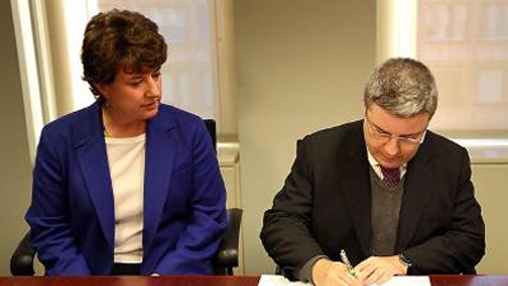Touted as a major step in Minas Gerais’ public finances, a new $450 million loan will go a long way to address the state’s social and economic gains of the past years. Approved last July, the Third Minas Gerais Development Partnership will free up public resources by restructuring existing high-interest debt.
Authorities have vowed to use the newly available resources to widen social benefits and opportunities for the poor. Safety net plans such as Piso Mineiro and poverty survey Porta a Porta will get a boost under the new arrangement, said Governor Antonio Anastasia at the loan signing ceremony, also attended by World Bank Vicepresident Hasan Tuluy and Brazil director Deborah Wetzel.


